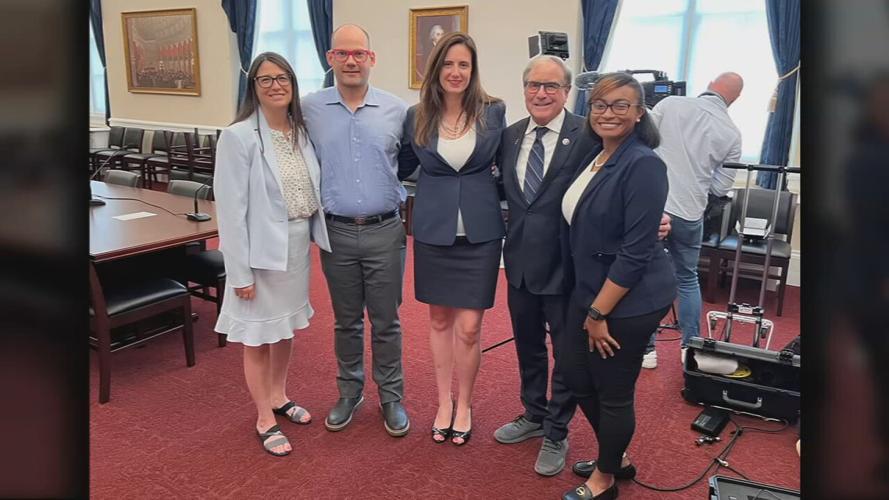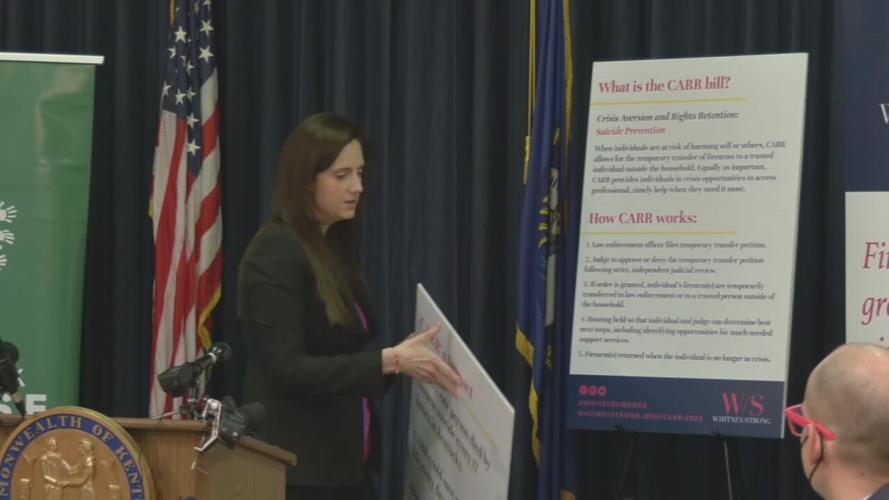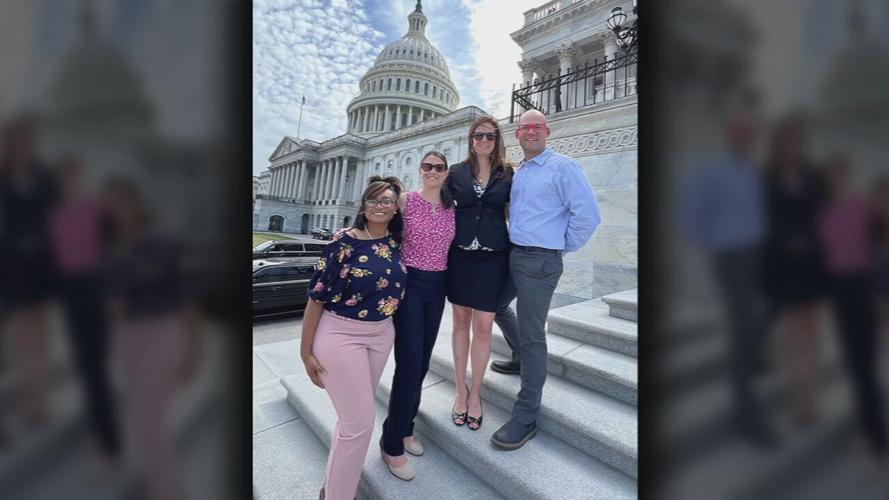LOUISVILLE, Ky. (WDRB) -- A Louisville gun reform advocate and mass shooting survivor is celebrating the passage of a sweeping anti-gun violence bill.
Whitney Austin was in Washington, D.C. last week lobbying for changes in gun regulations. Austin started the Whitney/Strong Foundation after surviving the Fifth Third Bank shooting in Cincinnati. She was shot 12 times during the September 2018 attack.
She had planned for the trip before movement on the bill started.
"We've said from the beginning if we wanted to see change, we would have to come together by that, we have things in common and not our differences," Austin said. "And that's exactly what Washington did. Obviously it should be model for many issues."
The Bipartisan Safer Communities Act crafted by senators from both parties, would incrementally toughen requirements for young people to buy guns, deny firearms from more domestic abusers and help local authorities temporarily take weapons from people judged to be dangerous. Most of its $13 billion cost would go to bolster mental health programs and for schools, which have been targeted in Newtown, Connecticut, Parkland, Florida and many other infamous massacres.
Austin's organization is dedicated to ending gun violence and promoting what Austin calls common sense, common ground gun laws.
Under the compromise, background checks for gun buyers age 18 to 20 will now include an examination of their local juvenile records. The accused shooters in Uvalde and Buffalo were both 18.
People convicted of domestic abuse who are current or former romantic partners of the victim — not simply spouses or people who lived or had children with the person they abused — will be prohibited from acquiring firearms. That closes the so-called “boyfriend loophole.”
There will be money to help states enforce “red flag” laws that help authorities temporarily take guns from people considered threatening and for other states’ violence prevention programs. More people who sell weapons would have to become federally licensed gun dealers and need to conduct background checks.
Penalties for gun trafficking are strengthened, billions of dollars are provided for behavioral health clinics and school mental health programs and there’s money for school safety initiatives, though not for personnel to use a “dangerous weapon.”
Austin said the red flag programs, which allow local authorities to temporarily take weapons from people judged to be dangerous, could also get federal money through the bill. Austin hopes it will encourage Kentucky to pass similar legislation she's been pushing for the last few years labeled Crisis Aversion and Rights Retention (CARR). It has bipartisan support but wasn't voted in the last session.
Copyright 2022 WDRB Media. The Associated Press contributed to this report. All Rights Reserved.

















